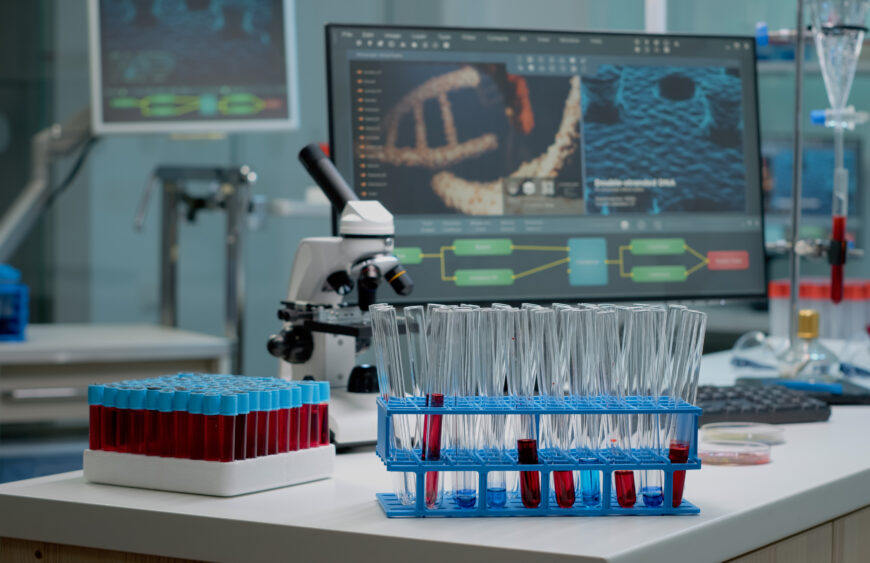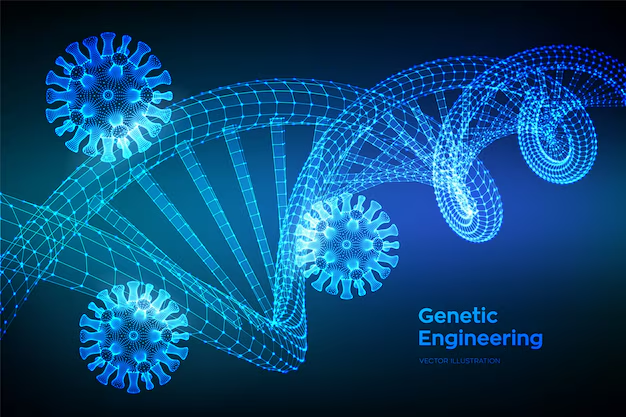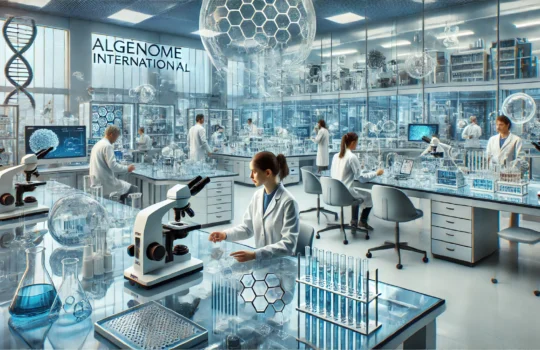Introduction:
A well-equipped laboratory is the heart of scientific research in the field of life sciences. It is a space where discoveries are made, hypotheses are tested, and new frontiers of knowledge are explored. To ensure accurate experimentation and reliable results, certain indispensable equipment is required. In this blog, we will delve into the ten most important pieces of equipment that any life science lab should possess. So, let’s explore the tools that unlock the secrets of life!
- Microscopes: Microscopes are the eyes of life science laboratories. They enable scientists to observe and analyze specimens at the cellular and molecular levels, unraveling intricate details that remain hidden to the naked eye. Whether it’s studying cell structures or examining microorganisms, a high-quality microscope is essential for visual exploration.
- Centrifuges: Centrifuges play a crucial role in separating substances of different densities in a sample. They are used to isolate cells, proteins, DNA, or other biological components by subjecting them to centrifugal force. This equipment is vital for various applications, such as blood sample processing, purification of biomolecules, and separation of cellular organelles.
- Spectrophotometers: Spectrophotometers measure the intensity of light absorbed or transmitted by a substance across different wavelengths. In life sciences, they are employed to determine the concentration of biological molecules, study enzymatic reactions, and assess the purity of samples. These devices provide quantitative data, aiding in precise analysis and experimentation.
- PCR Machines: Polymerase Chain Reaction (PCR) machines are indispensable for DNA amplification. They facilitate the replication of specific DNA sequences, enabling researchers to generate sufficient genetic material for various downstream applications. PCR machines have revolutionized molecular biology, playing a vital role in genetic engineering, diagnostics, and DNA sequencing.
- Incubators: Incubators create controlled environments necessary for cell culture and microbial growth. They regulate temperature, humidity, and CO2 levels, providing optimal conditions for the cultivation of living organisms. These devices are fundamental in studying cell behavior, drug testing, and microbiological research.
- Electrophoresis Systems: Electrophoresis systems are employed to separate and analyze biomolecules, such as DNA, RNA, and proteins, based on their size and charge. These systems utilize an electric field to move molecules through a gel matrix, allowing scientists to investigate genetic variations, protein expression patterns, and diagnose genetic disorders.
- Autoclaves: Autoclaves are essential for sterilizing equipment, media, and biohazardous waste. They utilize high-pressure steam to eliminate microorganisms, ensuring aseptic conditions in the laboratory. The ability to maintain a sterile environment is crucial for cell culture, microbiology, and working with infectious agents.
- Shakers and Stirrers: Shakers and stirrers are vital for mixing solutions, suspending cells, and facilitating chemical reactions. These devices provide controlled agitation, aiding in the homogenization of samples, culture growth, and enzyme reactions. They are indispensable tools in biochemistry, cell biology, and biotechnology research.
- Refrigerators and Freezers: Refrigerators and freezers are crucial for preserving biological samples, reagents, and enzymes at specific temperatures. Cold storage safeguards the stability and integrity of sensitive materials, preventing degradation and maintaining their viability for future experiments. These appliances are essential for long-term sample storage and maintaining a laboratory’s inventory.
- Safety Equipment: Safety equipment is paramount in any life science lab to protect researchers and maintain a secure working environment. This includes personal protective equipment (PPE) such as gloves, lab coats, safety goggles, and face shields. Additionally, fume hoods, safety cabinets, and emergency showers are
AlGenome International partners with top-tier suppliers worldwide to ensure access to high-quality laboratory equipment for the global scientific community.








